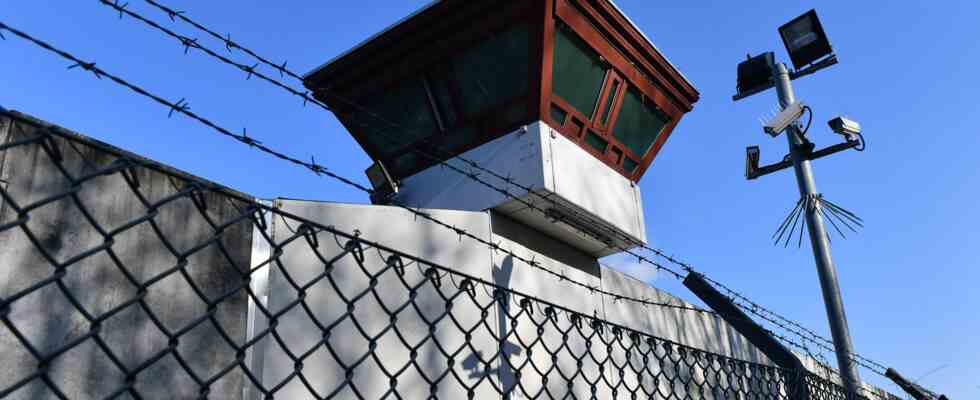Status: 12/21/2022 1:32 p.m
Anyone who fails to pay a fine can be imprisoned as a substitute. This substitute imprisonment is now to be halved: two daily rates are to correspond to one day of imprisonment in the future. Stricter penalties for femicides are also planned.
The federal government wants to revise the system of substitute imprisonment. If a fine is not paid, only one day of imprisonment should be due for every two daily rates imposed – so far the ratio has been one to one. The implementation of a replacement prison sentence “usually does not contribute to the rehabilitation of those affected,” explained the Federal Ministry of Justice in justification of the cabinet decision.
The system of substitute imprisonment has long been controversial. Critics see poor people in particular as disadvantaged. Anyone who fails to pay a fine can be imprisoned as a substitute. Fines are imposed in daily rates. A daily rate corresponds to the amount that a perpetrator has at his or her disposal in terms of net income per day. In the case of non-payment, it has so far been the case that one daily rate corresponds to one day of detention. This should now be halved.
Community work instead of imprisonment
In addition to the planned reduction in prison terms, the reform that has now been passed in the cabinet should also ensure that the aversion to substitute imprisonment through community service is strengthened.
It should also be made easier for those affected to pay the fine after all – for example through support when applying for installment payments. “We are presenting a historic reform of the replacement prison sentence,” said Federal Justice Minister Marco Buschmann. This had already been tried ten times in vain.
Stricter crackdown on femicides
The federal government is also planning changes to another paragraph of the Criminal Code – Paragraph 46, which regulates the “principles of sentencing”. The corresponding paragraph, in which “racist, xenophobic, anti-Semitic or other inhumane” motives are already listed, is to be supplemented with “gender-specific” and “against sexual orientation” motives.
Specifically, this is about violence against women by the partner or ex-partner, including so-called femicide, i.e. the killing of the woman against the background of the partner’s or ex-partner’s fantasies of possession and power. On the other hand, it is about acts in which the sexual orientation of the victim plays a decisive role.
Cooperation with criminal assistance
Other changes relate to the admission of offenders with addiction problems to rehabilitation centers. The guidelines are to be tightened here in order to ensure that only perpetrators who are able and willing to receive therapy are admitted to such clinics. “This is also intended to slow down the increase in the number of people accommodated that has been observed for many years,” said the Federal Ministry of Justice.
An earmarked transmission of personal data to private offender assistance organizations should be permitted. Their social workers can then show convicts options “to pay off the fine in installments or to do community service in order to avert the enforcement of a substitute prison sentence”. The justice ministers of the federal states had pushed for this passage to be inserted.
Finally, the draft law provides that so-called conditions and instructions in criminal proceedings should be strengthened. This involves, for example, suspending a sentence on probation with the requirement that the offender undergoes psychotherapy. As the Federal Ministry of Justice explained, current studies show that such therapies “actually have a recurrence-reducing effect”.

